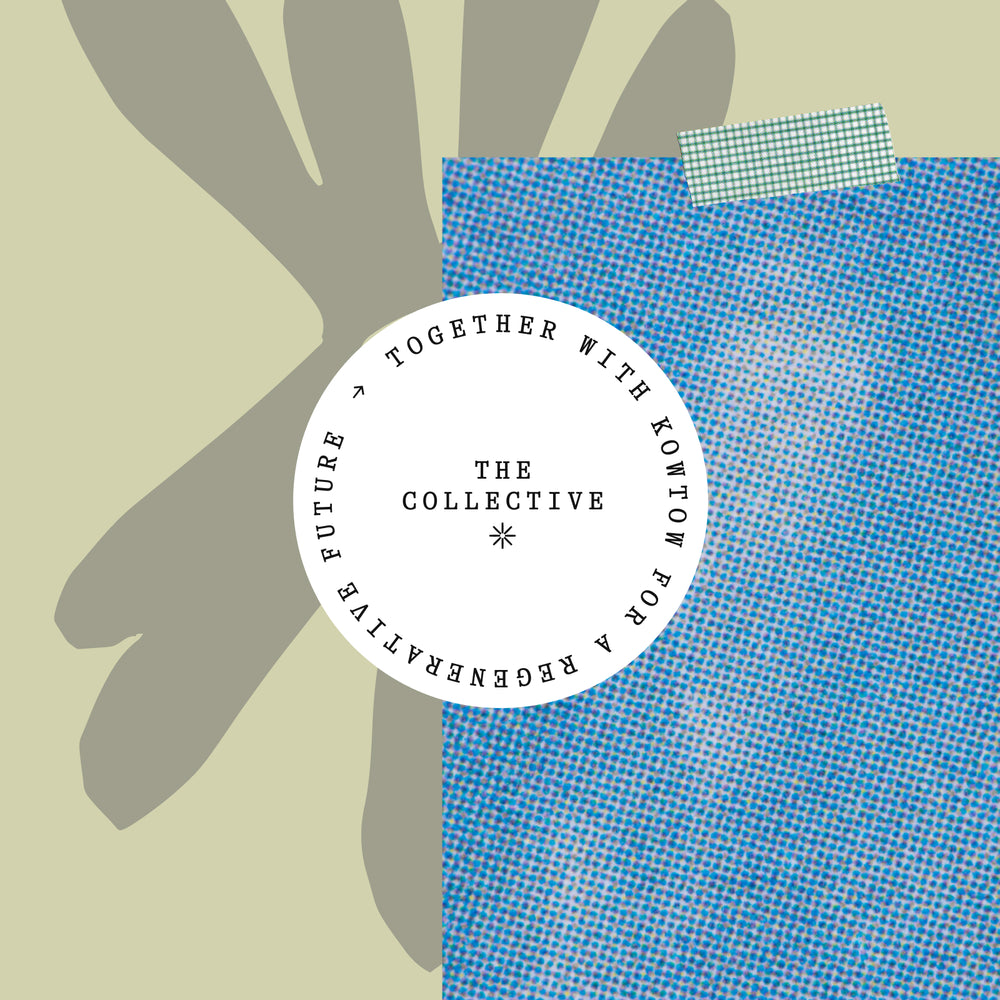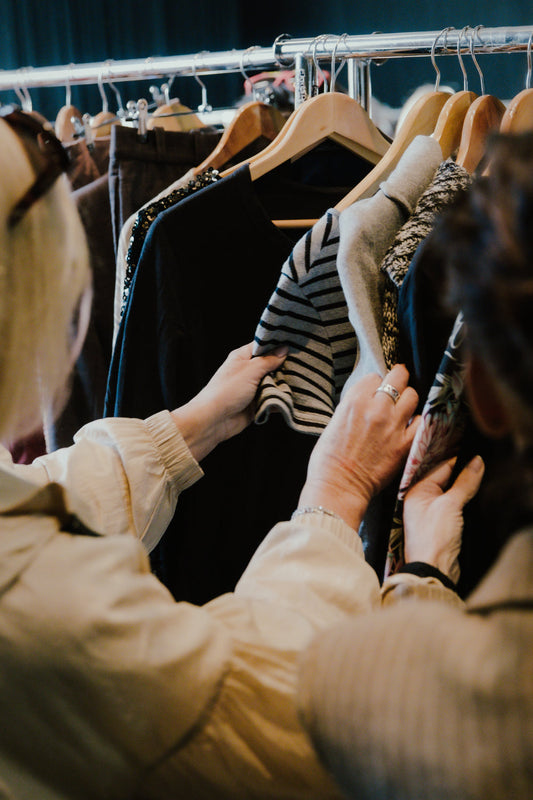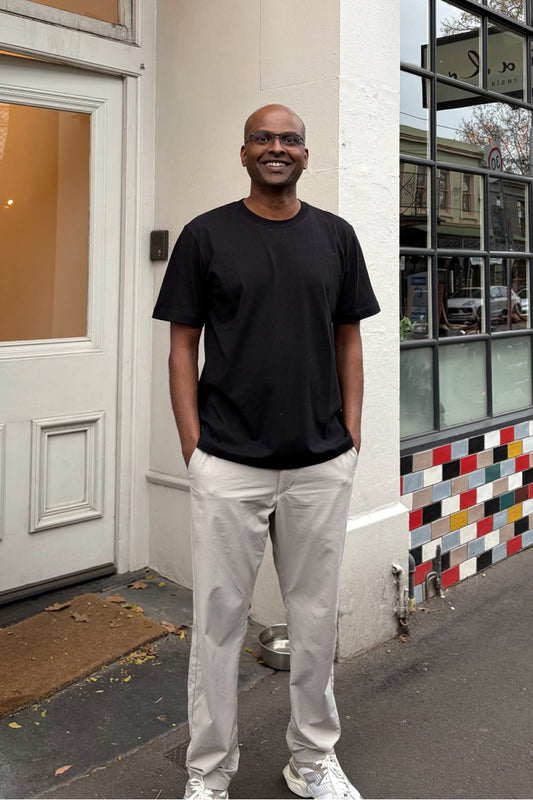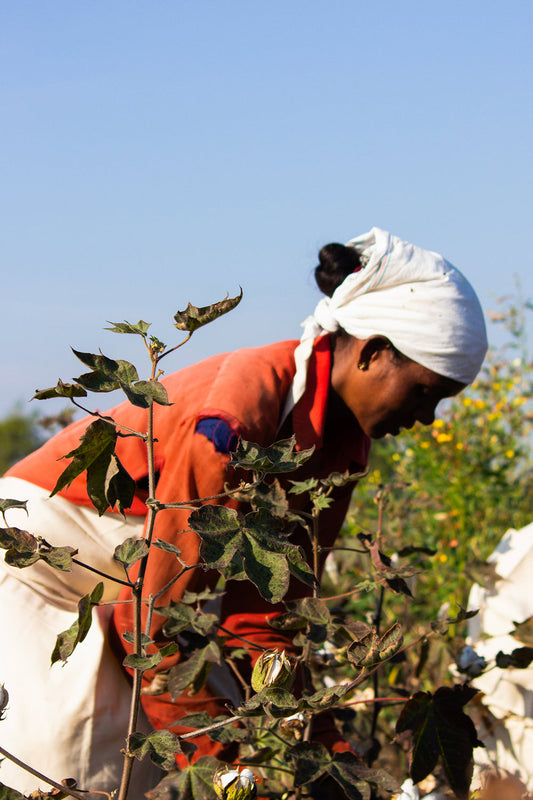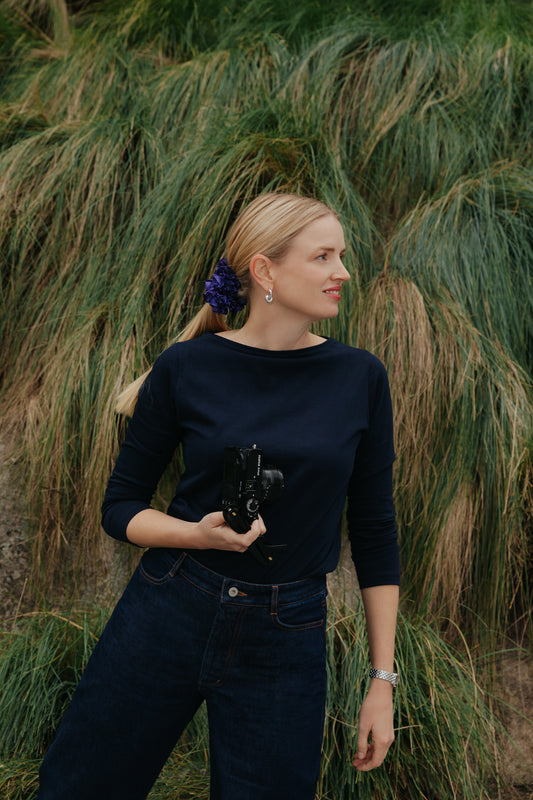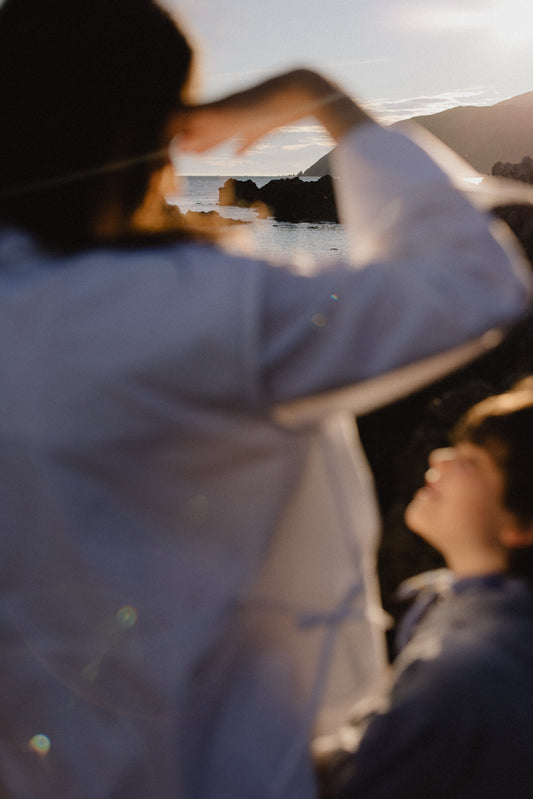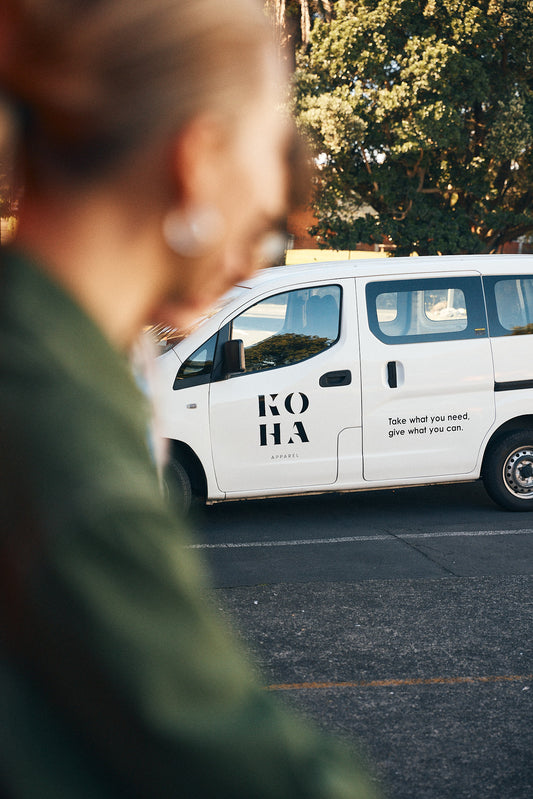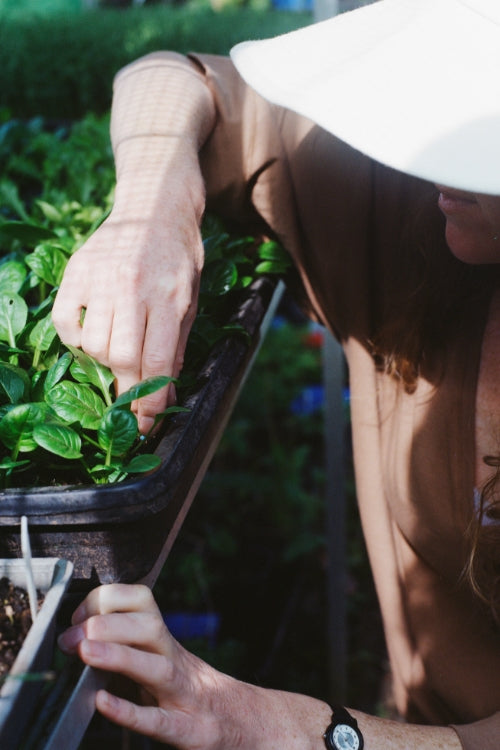New Zealand Designer Clothing Swap
On Friday 29 August, we held the New Zealand Designer Clothing Swap as a part of NZ Fashion Week. The swap was a celebration of values-driven community, showing that when we shop with intention, our clothes can live many lives.
A conversation with Senthil Nathan
Senthil Nathan, CEO of Fairtrade Australia and New Zealand talks to us about what it really means when a product is Fairtrade certified. From the cotton fields to your closet, Senthil shares how Fairtrade is helping farmers build resilience, how certification works behind the scenes and why your choices can make a bigger difference than you think.
Growing better together: Kowtow & Fairtrade
At Kowtow, Fairtrade isn’t just a label — it’s the foundation our entire business is built on. It’s how we show up, for the people behind our clothes and the planet we all share. This year, as we celebrate Fairtrade Fortnight, we’re reflecting on nearly two decades of choosing a different path — one rooted in justice, dignity and long-term relationships.
A conversation with Chloe Hill
As a stylist and sustainability advocate, Pōneke based Chloe Hill has become a quiet force in the fashion world, proving that ethics and aesthetics don’t have to compete - they can collaborate. In this conversation, Chloe shares her deep connection to te taiao (the natural world) and the everyday choices that help shape a more thoughtful, beautiful future for fashion.
Martha Jeffries: Reconnecting People to the Planet
Wellington filmmaker Martha Jeffries has spent her career moving from sounding the alarm on climate change to spotlighting the solutions and the people behind them. Her work invites us to see ourselves not as separate from nature, but deeply intertwined with it. To mark Earth Day, we spoke to Martha about standing up for change, the power of storytelling, and what gives her hope.
Repair Workshop with Rachel Rutt
In February we celebrated the launch of The Collective in Sydney with a mending workshop, hosted by Rachel Rutt. Hosted at the beautiful Maido, our local community gathered to learn the art of Sashiko, a Japanese mending technique.
A Conversation with Grace Forrest
Grace Forrest is a human rights activist and co-founder of Walk Free, an international human rights organization working to eradicate modern slavery. Through Walk Free, Grace Forrest has played a pivotal role in raising awareness about modern slavery, forced labor, and human trafficking. Here, she helps break down what modern slavery really means, how it affects people and why legislation is the only way forward to make significant change.
Kowtow Loves #02
Loneliness is a shared experience that often goes overlooked. After experiencing this herself, Sophie McIntyre founded Club Sup - a supper club for people to make authentic and lasting connections across Melbourne and Sydney. The idea of shared connection through food, music, literature and art is something we often discuss at the Kowtow Workroom and Sophie’s approach to fostering community and connections is one we admire. We spoke to Sophie about the inception of Club Sup, her experience at these events and the most worn piece in her wardrobe.
Two Raw Sisters in Kowtow
When Margo and Rosa, also known as Two Raw Sisters asked us to dress them for their new book, it was a no brainer. Two Raw Sisters is a plant-forward company that puts good ingredients first, sharing effortless recipes that nourish. Having followed their journey, we knew the love they had for the clothes we make, and knew collaborating would be special.
Regenerative Farming with our Fairtrade Farmers
We believe organic, natural fibres are the answer to fashion’s climate crisis. How? Using regenerative agriculture practices to produce the natural fibres that make up our clothes.
Kowtow & Fairtrade: An Eighteen Year Partnership
When Gosia founded Kowtow in 2006, she knew she wanted to make clothing made from organic cotton that was Fairtrade certified. After learning about the Fairtrade Labelling Organisation (FLO) she was certain this was the path Kowtow should take to entirely understand the cotton supply chain and look after the growers who are traditionally the least looked after and taken advantage of in any commodity.
Lucianne Tonti on Regenerative Agriculture and Natural Fibres
Lucianne Tonti is a sustainable fashion journalist who we were happily introduced to last year via her book, Sundressed. We spoke to Lucianne to break down what regenerative agriculture really means, the benefit of wearing natural fibres and her approach to getting dressed.
Kowtow & Our Relationship With Clothes
Fashion Revolution Week asks us to consider what we wear, who makes our clothes and why transparency and accountability are paramount in the fashion industry. This year we wanted to spotlight a member of the Kowtow community who we think is revolutionary in the way they document and see fashion.
Founder Story with Gosia Piątek
Gosia Piątek founded Kowtow in 2006 with a vision where a necessary product, such as clothing, originated from and how it could return back into the earth, without causing harm to people or the environment. Here she tells us the journey before she started her mission and what her vision for the future of Kowtow is.
Creating a culture of care
We proudly partner with Koha Apparel, a registered charity that seeks to uplift our most marginalised, providing clean, quality clothing to those in need at no cost. Based in Tāmaki Makaurau, we spoke with founder Charli Cox about this work and how the organisation is addressing textile waste through their community clothing exchange.
Kelmarna: Creating A Food System Kinder To The Planet
Nestled in the heart of Tāmaki Makarau, Kelmarna is an urban farm whose purpose is to rebuild connections between people, food production and the land.
